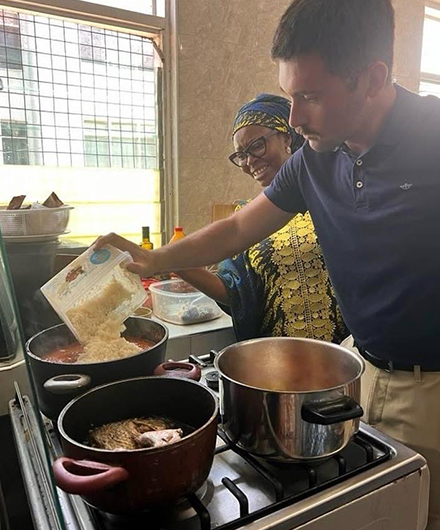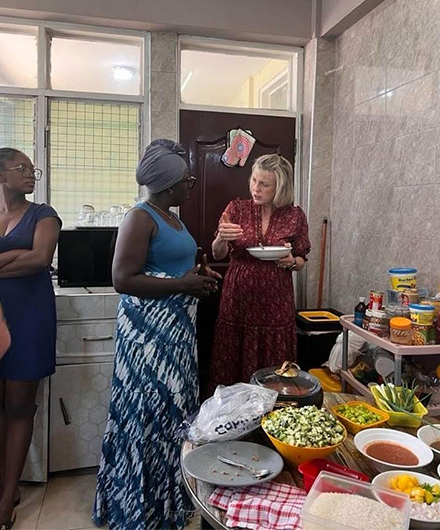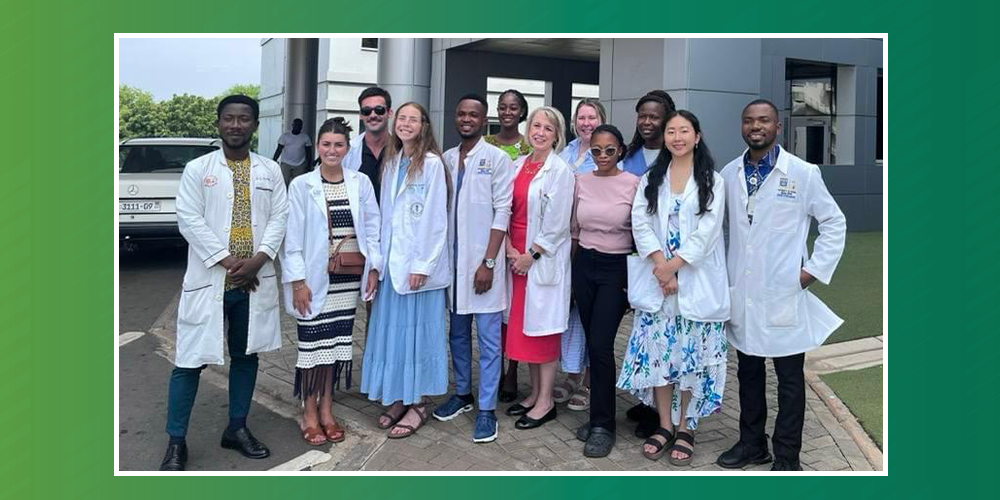USF College of Public Health Associate Professor Lauri Wright has been going to Ghana for seven years now to work with the dietitians to prevent and treat malnutrition. But for the first time this summer, she brought a group of five USF graduate students as interns on the journey.
The students traveled to Princess Marie Lois Hospital, the leading malnutrition treatment center in West Africa, to learn alongside Ghanaian dieticians. The students learned about severe malnutrition, how to assess it, and how to treat it. The interns also learned about kwashiorkor, a disease caused by severe protein malnutrition.
“Students were able to go into the community and screen children for malnutrition,” Wright said. “They found one that met outpatient criteria and one that actually needed to be admitted to the hospital.”
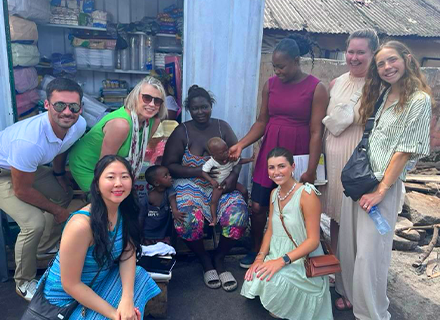
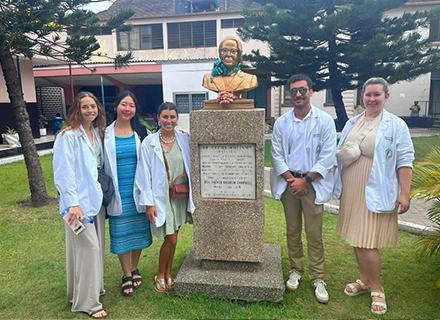
The USF contingent also spent time at Korle Bu Teaching Hospital, a 100-year-old hospital that was the first in Ghana and is still the largest teaching hospital in the country. “They got to go on the burn unit and see how they treat burns,” Wright said. “Then, they got to see a patient starting dialysis for the first time.” The dialysis unit at Korle Bu Hospital is the first dialysis center in all of Ghana.
For the interns, their time in Ghana had a huge learning curve. “Americans are used to being in hospitals when a patient has a particular disease, there is automatically a formula and resources designed to meet all of their particular nutrient needs there,” Wright said. “Here, they have to get very creative with what is available.”
In Ghana, if there are no nutrition supplement products available, local foods are
blended with fish powder to increase protein; the interns learned how to use resources
available to treat malnutrition. During their visit, participants attended a cooking
class on the local cuisine led by the dietitians and experienced a day of cultural
immersion.
Typically, Wright conducts a workshop every year to give back to the communities where
USF interns are learning. “We ask a lot of our hosts during the visit,” she said.
“I feel it’s important to give back to them for what they give to us.”
